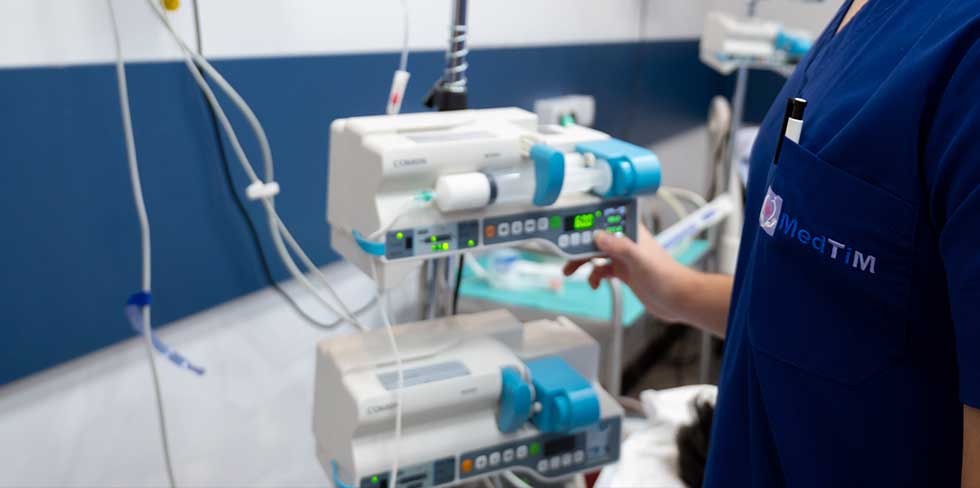Possibility of cost reimbursement through health insurance
Alcoholism, or alcohol addiction, is one of the most widespread addictions today. It affects every aspect of an individual’s life, as well as the lives of those around them.
Alcohol addiction is a persistent craving for alcohol, coupled with an inability to stop drinking despite its harmful effects. It is estimated that around 10–15% of the adult population struggles with problematic drinking. Research consistently shows that alcohol use disorder severely damages both physical and mental health. Without proper medical treatment, alcoholism can reduce a person’s lifespan by up to 15 years, with the average life expectancy of an alcoholic ranging between 55 and 60 years.
Because alcohol is legal, widely available, and relatively inexpensive, it is often not perceived as a drug. However, when misused, it can cause severe physical and psychological dependence. Once alcoholism takes hold, withdrawal can be extremely challenging due to the intense symptoms that arise when an individual attempts to stop drinking. However, recovery is possible with the right support and treatment.
For these reasons, treating alcoholism requires comprehensive medical care in a specialised addiction treatment clinic.

In other words, an alcoholic needs a larger amount—or dose—of alcohol than before to achieve the same level of intoxication.
When considering these three factors together, it is extremely difficult for an individual to overcome addiction on their own. Before seeking professional treatment—whether independently or with the encouragement of loved ones—many alcoholics attempt to stop drinking by themselves, but often without success. This is because psychological dependence draws them back into the addiction, creating a so-called “vicious cycle” from which they are unable to break free without help.
Alcoholism, or alcohol use disorder, occurs when chemical changes, due to long-term and chronic use of this psychoactive substance, cause the brain to change and adjust its normal functions. Then addiction occurs.
Alcoholism is a progressive disorder, meaning its effects and the risk of health complications worsen with prolonged alcohol use. This is why it is essential to seek treatment as early as possible.
People often begin drinking out of curiosity or for enjoyment. Alcohol’s effects on the brain can create the illusion of easing mental distress and enhancing mood. However, this is merely the first stage of consumption.
If drinking continues, it can develop into a habit, then a necessity, eventually leading to alcohol addiction. In this progression, alcoholism unfolds in four stages, each of which takes a serious toll on a person’s well-being.
At this stage, the individual has developed a dependency on alcohol, meaning they have become an alcoholic. This phase marks a critical turning point in the progression of addiction and comes with significant physical, psychological, and social consequences. The key characteristics of this phase include:
Addictive mechanisms evolve alongside the stages of alcoholism. These mechanisms reinforce and perpetuate the addiction, making it incredibly difficult for an individual to break free from the “vicious circle” of the illness without professional help.
Individuals developing an addiction often rely on various defence mechanisms to justify their behaviour, avoid confronting reality, or minimise feelings of guilt. These mechanisms form part of a psychological strategy that enables them to continue engaging in destructive habits.
One of the main reasons people drink, and why addiction develops, is the desire for the effects (consequences) alcohol produces. The consequences of alcoholism can be divided into short-term and long-term effects.
Although both types of consequences are harmful to the alcoholic and their surroundings, particular attention should be given to the long-term effects of alcoholism, which definitely require treatment.
When consumed in very high doses, alcohol can be fatal. This further emphasises the importance of seeking treatment for alcoholism at the earliest stages of the condition. Some of the effects of alcohol intoxication include reduced heart rate, respiratory problems, choking in the stomach area, memory loss of recent events, and, in extreme cases, death.
After consuming alcohol over a relatively long period, long-term negative consequences of alcoholism begin to occur. Alcohol, as a psychoactive substance, damages the entire body.
All the long-term harmful effects of alcoholism can be divided into physical, psychological, and social categories.

Physical consequences of alcoholism :
Psychological (mental) consequences of alcoholism:
Social consequences of alcoholism
The signs of withdrawal typically include at least two of the following symptoms:
In addition to these, withdrawal symptoms also include decreased intellectual and work efficiency, aggression, difficulty in communication, tension, and depression. All of these symptoms may worsen within the next 2 to 3 days from the onset of withdrawal. In some cases, they can last for several weeks.
Severe forms of withdrawal include alcoholic hallucinosis and epileptic seizures. The most severe symptom, or consequence of withdrawal, is delirium tremens.
Delirium tremens (alcoholic madness) is by far the most severe complication of alcoholism. Unfortunately, it is a common form of psychosis in alcoholics that occurs as a result of the toxic effects of alcohol.
Delirium tremens occurs as a result of the sudden cessation of alcohol consumption, within 48 to 96 hours, following prolonged and heavy drinking. The likelihood of delirium occurring in chronic alcoholics is estimated at 5% to 10%. It is more common in the older population, as they already have underlying brain damage.
The clinical picture of delirium tremens includes confusion, disorientation in time and space, hallucinations (such as mice, bugs, etc.), psychomotor agitation, intense fear, insomnia, memory impairment, tremors, sweating, elevated body temperature, rapid heart rate, high blood pressure, and dilated pupils.
The risk factors for the development of delirium tremens are:
Treatment involves the parenteral administration of benzodiazepines and hypnotics, along with rehydration, antibiotic, multivitamin, cardioprotective, anticoagulant, and other necessary therapies. Treatment is carried out in a hospital setting, and the most appropriate treatment for alcohol withdrawal is provided in the intensive care unit.
Complications of delirium tremens include: respiratory insufficiency, respiratory arrest, pneumonia, cardiac arrhythmia, acute myocardial infarction, liver function failure, renal insufficiency, and epilepsy.
Despite intensive treatment, the mortality rate of patients with delirium ranges from 5% to 15%. Today, with modern diagnostic and treatment measures, it is around 5%. The most common causes of death are respiratory insufficiency and cardiac arrhythmia. Delirious patients are also at high risk of late complications of chronic alcoholism, with the most frequent being liver cirrhosis and brain damage (Wernicke-Korsakoff syndrome and alcohol-induced dementia).
At MedTiM Clinic, we take the treatment for alcoholism with the highest level of seriousness, as we recognize that it is a complex issue requiring a carefully structured and holistic approach. Our aim is to offer each patient personalized care that ensures a successful recovery, a smooth transition through withdrawal symptoms, and lasting stability.
The alcohol addiction treatment program at MedTim Clinic lasts for 14 days and includes intensive recovery phases. The treatment involves detoxification and body regeneration, pharmacological support, and psychotherapy treatments, with constant medical supervision throughout the entire process.
The combination of detoxification, pharmacotherapy, and psychotherapy provides a comprehensive approach that helps overcome alcohol addiction and achieve long-term stability. This program not only addresses the physical consequences of addiction but also enables patients to confront emotional and psychological challenges. After completing inpatient treatment, patients are offered continuous support through regular check-ups and counseling to ensure lasting abstinence.
Alcoholism significantly damages both physical and mental health, particularly harming internal organs such as the liver and cardiovascular system. MedTim Clinic offers comprehensive treatment programs, including innovative therapeutic methods for body regeneration and recovery.
The multidisciplinary approach at MedTim Clinic includes:
If you’re interested in the cost of alcohol addiction treatment, please don’t hesitate to contact us by phone or email. Our team is available to provide all the necessary information about the treatment process and associated costs. Our medical advisors are always on hand to assist with any questions you may have.
Investing in alcoholism treatment is not only a step towards better health but also a pathway to a brighter, addiction-free future.
